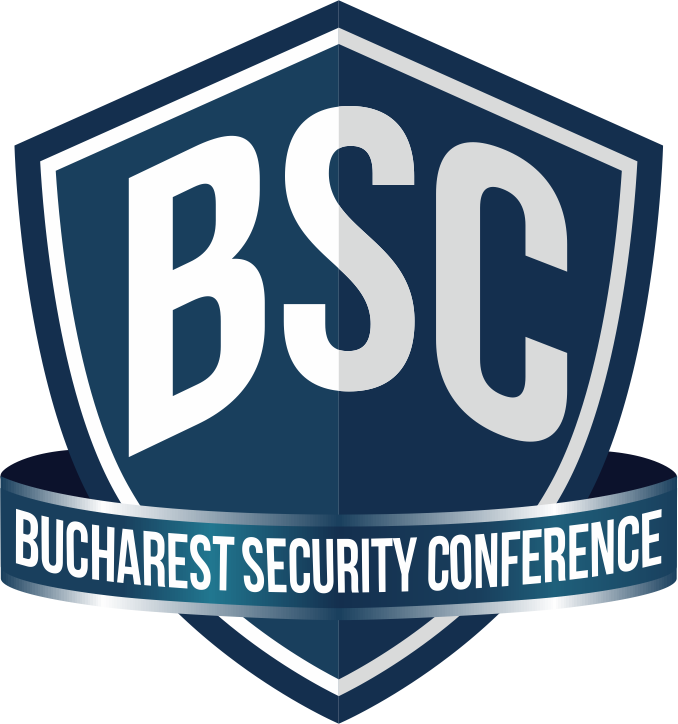About the event
The 2014 Wales Summit acknowledges that cyber threats are becoming “more common, sophisticated, and potentially damaging”, calling for the establishment of an Enhanced Cyber Defence Policy in order to provide the necessary capabilities for protecting the Allies’ national networks. The panel started from the significant achievements in the cyber warfare domain, as The Cyber Defence Pledge adopted in Warsaw ensures that members of the Alliance “will be capable of defending themselves in cyberspace as in the air, on land and at sea”, working together and contributing to the success of Allied operations. Given those circumstances, and the fact that the targeted country had the primary responsibility to respond to a hybrid threat/attack Romania, together with the other countries from the Eastern Flank, had to identify how best to adapt their national security strategies to the new developments in the security environment on the Eastern and Southern flanks. Also, this panel addressed the evolutions in cyber defense a year after the decisions taken at the Warsaw Summit, when cybersecurity was declared operational space, as the terrestrial, air and naval realms.
PANELISTS
Călin Rangu (Director of Consumer Protection Directorate at Financial Supervision Authority and Chairman of the Financial Studies Institute)
He talked about cybersecurity and about two types of threats for a company/organization: foreign and domestic. Mostly, the biggest vulnerabilities are the internal ones, or at least in the case of companies in the financial-banking area. In this domain, most of the problems companies are confronted with come from internal frauds, from the unsatisfied employees (for various reasons, for example, because they are not valued and stimulated enough) which provokes breaches in the system. Călin Rangu underlined the importance of organization and human resource as instruments to manage vulnerabilities.
Janusz Kowalski (Founder of the Warsaw Institute)
He talked about disinformation (fake news) and about their effects on the economic environment. As well as that he pleaded for the regional cooperation (Check, Romanian, Polish think-tanks) to combat Russian disinformation.
Kevin J. Scheid (General Manager, NATO Communications and Information Agency)
He talked about NATO’s concern to invest in cloud technology, virtual meeting rooms and other necessary technological resources to adequately answer the 21st-century provocations and risks, all in the condition that there are thousands of attacks daily against the NATO networks.
„We are trying to work smart and invest smart in new technologies.”
As well as that, he underlined the fact that NATO needs a more asymmetrical approach regarding the cyber/informative war, but also of a tighter cooperation, which supposes the permanent exchange of information and expertise with the industry, academia and the non-profit sector.
Kevin J. Scheid reminded the main principles underlined at the Warsaw Summit:
- treat cyber as operational domain (recognize cyberspace as a domain of operations);
- a cyber attack could constitute an act triggering article 5.
Andrei Fortuna (Vice-Rector of the National Institute of Intelligence and Security “Bogdan Întemeietorul Moldovei” of the Republic of Moldova)
He talked about the informational war (targeted the propagation of a reflexive behavior) about the organization of security systems (physiological, institutional, informational security) but also about the importance of organizational dimensions and national security. Andrei Fortuna exposed a series of consequences which an informational attack has over the target: turbulence in public policy, wasting resources on inefficient programs, stalling the development in the military and defense domain, affects the national culture, creates a level of the elite a „fifth column” which promotes and sustains a pseudo-reform.
Dan Sultănescu (Executive Director of the Center For Civic Participation and Democracy)
He talked about anti-western propaganda in Romania and made a series of observations leaving from a series of analysis from the online space: the younger generation is more interested in Russia than other generations (the pro-Russia public: 18%); The West does not only mean one voice (USA, EU); classic mass media has an impact (more) smaller over the new generations; in Romania there are less positive messages about the West and about the US.
As well as that, he presented a series of data regarding the impact in the online space of two NATO military exercises (Noble Jump and Saber Guardian) and in this context he made a comparison of the main anti-western propaganda narratives in the Baltic Countries and Romania.
Toma Cîmpeanu (National Association for IT Systems Security)
He talked about the evolution of propaganda (from classical to online media), about fake news and about the force of the social networks to generate effects and the offline environment – called for a study realised by TendLabs Research to show how an artificial protest can be generated (mobilizing in online for actions in offline).
